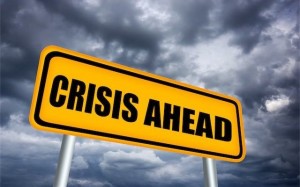FIGHT THE SLIME! There‘s a Planet at Stake. Now is the time for human heroism and caring to matter.
It’s not impossible to save the seas. The only thing in the way is the momentum of bad habits, and a culture that celebrates delusion
Fight the Slime!
If your enemy needs a face, let this be it. The end of modern seas, which may be locked in within your lifetime, will result in the loss of calcium carbonate skeletons in the sea, and the destruction of most complex food webs.
And replace them with bacterial slime.
This will wreak havoc on highly evolved, high-energy creatures with central nervous systems. We can’t know the details of the future, but there’s no reason to think they won’t be going away if we take coral, shells, and calcium skeletons out of the “sea life” equation. (Really, if you think current ecosystems can survive when reefs, shells and skeletons dissolve, you are on some really powerful drugs. Fully a quarter of ocean species depend on coral reefs for food. An additional quarter, perhaps, relies on a calcium skeleton. The most vulnerable species are the large, long-lived ones with brains which depend on existing food webs, and those webs mostly are integrally dependent on calcium carbonate.)
Those brainy, high-energy creatures will be replaced by bacterial slimes, jellyfish, worms, salps and other short-lived, low-nutrient density, high-reproductive rate creatures which evolved in rapidly-changing primordial seas.
Our Faustian bargain is this: we get to dig up and burn the sulfurous remains of those ancient primordial seas, to grant some of our wishes in the very short term. In exchange, we must accept the primordial seas back again, devoid of advanced animal life; and a scorching new climate. What devil could conceive of a more hellish payment, or a temptation better suited to the human mind? Trading away the future of our children for the pleasures enabled by the fire of today.
Well, no. HELL no. No Deal.
Now’s the time for heroism. This means you.
Frodo had it easy.
I’m just saying.
In addition to the inherent advantage of being an imaginary character in a story which pretty much had to end well, his task was essentially simple. The answer was elegantly reductionist, and figured out for him by a wizard. Take this ring and throw it in a remote volcano, and the world becomes a nice place again. All he needed to do was ride a giant eagle to Mordor and chuck it in. (Going on foot, of course, made for a thicker book).
Our task isn’t so easy, because the problem emerges from the way 7 billion humans have evolved and learned to be.
We either have to (a) convince most of them to stop burning fossil carbon in a few decades, and make do with a far lower-energy basis for society; (b) stop the burning of fossil carbon against their wishes; or (c) kill the seas and scorch the land with runaway CO2 emissions and positive feedbacks.
This is a non-trivial challenge, for the current arrangement of human existence depends on the excess-energy largesse of fossil fuels to keep 7 billion people fed, supplied, pregnant and relatively nonviolent.
Challenging the dependence won’t be popular. Anyone who seriously starts curbing the speed at which fossil carbon comes out of the ground will be very unpopular. Ever if they’re as peaceful as Gandhi, they’ll be called radicals, terrorists, crazies. For that’s what sanity looks like in a culture built on non-sane precepts like the unreality of the future.
Adaptation? Really?
There’s a lot of good stuff out on the internet about ocean acidification and climate change. And you should take a few weeks and go read it. Seriously, go do that. We’ll wait.
However, what you’ll find in most of these locations is an entrenched fatalism. They stress adaptation. If there won’t be fish in the future, then fishing communities can learn to weave blankets. If the rainforests burn, we’ll get by with pictures of them. If the sea level rises, we’ll move inland a little bit. If whales and dolphins go extinct at sea, we can go to Sea World and watch the last few do tricks for us.
The entire premise of “adaptation” is that the destruction of the seas and the climate are a done deal. We’d be the first to admit that’s how it’s trending, but it hasn’t happened yet.
It’ll mark us as radicals – and not for the first time – but we’d like to point out that adaptation, as practical as it is, is an accommodation of evil. It’s giving up a living planet, and the wondrous diversity of nature, without a real fight.
What are you waiting for?
We hope you’ll join with us. But if you don’t, you still need to figure how you as an individual are going to define yourself, your personal success as a living being. You are alive at a crucial time, and you can make a difference. Figure out how. If you can’t, we’ll help.
Don’t send some group a $5 donation. Mortgage your house, cash in your savings, live modestly while trying your damnedest to save your world.
Go out tonight and look at the stars and think about this. Be honest with yourself. You never know where that’ll lead…
…and if you decide to, get in touch with us.
Enlightenment as a Campaign Strategy
There’s a big assumption made by 99.9% of climate activists and CO2 campaigners.
One might call it the “enlightenment fallacy”.
It’s the belief that scattershot educational efforts, in and of themselves, constitute a plan to prevent bad things from happening in the world. It feels good to believe that. So it’s a shame that it’s wrong.
Hey, put down those rotten tomatoes. Aren’t we here raising awareness on the internet? We’ve been conducting environmental education around the world for decades. Really good high-profile positive stuff, often paid for out of our own pockets. It’s generally a good thing to do, and can be PART of an actual plan to make things better, or keep them from getting worse.
But it’s a dangerous fallacy that it constitutes a real plan.
It’s really a cultural default that hails from our evolution as tribe-members, with maybe 150 people or so in a tribe. If one person learns new information, they share it. It gets discussed, and then some alpha tribemember, or group, makes a reactive decision. Not exactly a plan, but a workable way for a stone-age tribe to get by.
These days, that’s still what we do. We disseminate the very best information we can, under the tacit assumption that billions of people can function like some sort of mega-tribe, sorting through propositions to come up with a reasonable course of action. When it doesn’t work, we blog even harder. When it still doesn’t work, we become fatalists, since a solution is obviously impossible.
Well, mega-tribes don’t work worth a damn. Just look at congress. And the human species as a whole is even less organized. People don’t mobilize unless they all individually feel stressed, and can put a face and blame on an enemy.
We know many brilliant people, scientists, professors, executives, teachers… who care about the issues, but who don’t question the logical basis of the enlightenment assumptions.
If asked to explain how it works, they generally say that when you educate enough people, a tipping point can be reached, and society’s behavior changed. We have no argument with that. But it happens rarely. Human society and culture have error-reducing protocols which make it extremely difficult to convince a majority of anything. When you add in the fact that humans have a strong evolved bias to deny unpleasant realities, and reject things which cause them to sacrifice, and that actual decisions are made by obscure instinct-honed algorithms in the unconscious limbic system, you finally realize that it is highly improbable to accomplish a revolution in such a way. Much less to accomplish it in the nick of time.
You need a plan.
Plans are about steering reality. It’s what we at EarthTrust do. Not because we are opposed to enlightening the masses. Because plans can work to move systems to a specific new state in a specific time in the real world, while enlightenment doesn’t. And as a bonus, once your plan works you can often make it SEEM like it was accomplished by enlightenment, which is always a crowd-pleasing spin that will quickly be accepted by the culture.
One reason ET repeatedly succeeds where most groups don’t is that we don’t rely on enlightenment as a mechanism, and they do. Oh, our video documentaries and research reports are as enlightening as theirs, but we don’t see them as the primary campaign, they’re ancillary.
Workable plans are a lot harder than scattershot educational enlightenment. They take systems understanding, tight timing, discipline in information control, and some shrewd human and political skills.
To many idealists, plans can seem manipulative. There’s a tacit assumption among many nice people that in any undertaking, the most important considerations are transparent honesty and egalitarian process, from which only true good can flow.
Well, that’s nice for them, but it’s a self-indulgence. A luxury. With a planet and our species at stake, we need to work with reality, not the way we wish reality was.
It’s time for intelligent plans. That’s the plan.
Let’s call it what it is: the accommodation of evil.
Evil? Sure, we’ll go there. If destroying a living world for short-term satisfaction is not evil, then the word should be stricken from the language. It’s not only evil, it’s the ultimate evil. Planetary biocide, the eternally unforgivable.
History is full of those who find it practical to reach a personal accommodation with evil. Because it’s very practical indeed. There were no big protests in Germany in the 1940’s as the trains took people away. Nobody really raced to stand between the Hutu and the Tutsi in Rwanda. How many activists marched against Pol Pot’s regime in Cambodia?
The current major focus of earth-activism is the climate change movement. We love those guys, but so far the campaigns have been wholly inadequate, even embarrassing. Let’s admit it: we humans don’t feel the urgency.
If you look at the heroism displayed by humans in time of war, you find thousands of inspiring stories of people risking death and worse for a cause bigger than themselves. Now, as we burn and acidify a planet, there are only token protests. No carbon has yet been left in the ground. No climate campaigners are dying or getting long prison sentences. We’re phoning it in.
Not that death and prison sentences are a desirable thing, far from it. But it’s a way to take the temperature of a social movement. When they start getting effective, really show signs of changing the world, there’s deadly pushback. The reason there has been no deadly pushback yet is that the pro-planet folks are basically all blogging to one another, which doesn’t change much.
We are what we have evolved to be. Our neocortex, the part of the brain which we consider to be self-aware, and which considers concepts that we have not yet experienced, does not make decisions. It “feels like” it does, but science has thoroughly disproved that. Rather, our decisions are made deep in our core brain, in a process our conscious minds don’t even have access to. The neocortex evolved to rationalize those impenetrable decisions to other in our ultrasocial species, and to rationalize to ourselves.
Issues like “climate change” and “ocean acidification” don’t engage our limbic systems. If you see a person beating a dog, your limbic system kicks in, and you might intervene to help the dog (or if you lean that way, to help him beat it). Learning something in a book or on a website gets it into your superficial brain but cannot directly engage the part of your mind which is evolved for crisis response.
We need to live up to the “homo sapiens” moniker, and be wise. That means finding a way to kick our limbic systems into action, to tap the heroism that lives in all of us. It’s time to save a world.
– DJ White, FutureSeas founder
________________________________________________
‘I wish it need not have happened in my time,’ said Frodo.’So do I,’ said Gandalf, ‘and so do all who live to see such times. But that is not for them to decide. All we have to decide is what to do with the time that is given us.’
Accomodation: a campaign anecdote
The perspective of accommodation is a cultural and organizational default. But it’s dangerous to resort on it when existential risk is on the table.
Here’s an example from a past ET campaign.
We decided to do away with the earth’s largest and most destructive fishing industry, deep-sea driftnetting. Over ten years of research and campaigning, we felt we had designed a plan with a chance of accomplishing that.
The campaign directors met with NOAA’s National Marine Fisheries Service. The NMFS agreed that the fleets were decimating the seas, but had too little data to prove it. He and his colleagues tried to convince us not to send our campaign vessel to engage the fleet, because it might jeopardize their hopes of getting two U.S. observers on the 1600-ship international fleet.
That is, all NOAA hoped to do was get enough information to write a report, documenting the end of surface fisheries. They were the USA’s leading edge on the issue. Good people, smart professionals, well-motivated, and trapped in the belief that noting could change the course of events.
We, on the other hand, were planning the demise of the industry.
It was a very clear difference: accommodation versus paradigm change.
Within 3 years of that meeting, the ET global driftnet campaign had succeeded in getting a unanimous UN moratorium on the practice, and NOAA was able to switch to the new reality of the fleets’ absence. The laws they now enforce came out of the ET victory.
When the stakes are high, we need to resist accommodation. Resist destruction of living systems. The radical thing is destroying the world, not saving it. Saving the earth’s life is conservative, by definition.




















